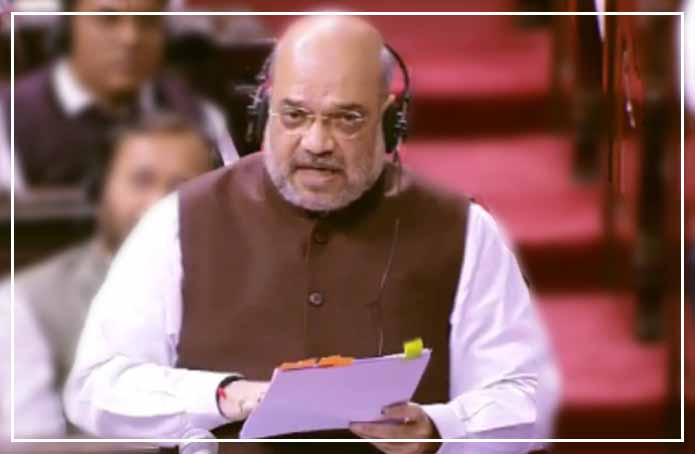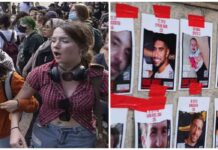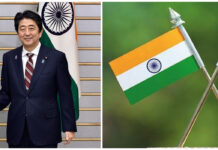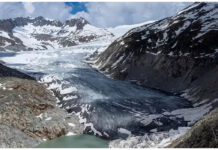Before talking about the Removal of Article 370 of the Indian constitution let us, clearly understand why this was required and how it is going to help Indians?
After Independence J&K was ruled by Maharaja Hari Singh. J&K was a Muslim majority state which was ruled by the Hindu king. He wanted to rule separately, never wanted to be in India nor Pakistan. Till October 1947 the things moved undecided, but when some of his own army troops, Pashtun tribals in joint collaboration with Pakistan army marched in J&K to dethrone him then to safeguard himself he agreed on J&K to be a part of India so that he could keep his throne.
On 27 October 1947, it was found that Hari Singh wasn’t able to rule the state properly then on that day the Indian government, led by then Prime Minister Jawaharlal Nehru, had forced the king to sign on the dotted line. But Pakistan objected by saying that it was a Muslim-majority state and how Hindu-dominated country can take over, this contradiction existed and this was only the conflict between the two nations.
Two years later in 1949, Article 370 was incorporated in the Constitution by the blessings of Pandit Jawaharlal Nehru. With a mutual understanding of Hari Singh and Lord Mountbatten, the then Governor-General of India of the Indian Constitution at that time gave special status and treatment to J&K and its citizens and was considered a princely state and Article 370 was incorporated in the constitution. Article 370 revealed that all matters except related to defense, foreign affairs, communications and matters specified in the Instrument of Accession of Jammu and Kashmir, the Parliament is bound to take the state government’s endorsement for all other laws.
This article was supported by Article 35A, which defined that the J&K state’s residents will live under a separate set of laws, including those related to citizenship, ownership of property, and fundamental rights, as compared to a resident of other Indian states. As a result of this condition, Indian citizens from other states are not allowed to purchase land or property in Jammu & Kashmir.
The mistake which was done by former PM Jawaharlal Nehru was rectified on August 5, 2019, wherein Home Minister Amit Shah announced the removal of Article 370 and 35A in the parliament, the most far-reaching move on the state after 70 years. This was broadly announced after a cabinet meeting on this issue at Prime Minister Narendra Modi’s house this morning. Amit Shah also initiated a bill to bifurcate Jammu and Kashmir into two union territories, which was approved in the Rajya Sabha. For the safety of J&K for any trouble in the state after the announcement, the center had moved 8,000 paramilitary troops from different parts of the country to Kashmir, in addition to it nearly 35,000 personnel had already moved in the past week.
On Monday, after very strong and firm discussions, the resolution on Article 370 cleared Rajya Sabha with two-thirds of majority, along with another resolution to bifurcate the state of Jammu and Kashmir into two Union Territories – J&K and Ladakh.
Both the resolutions now have moved in the Lok Sabha, where the government already has a clear majority.
Though, Congress’s Manish Tewari today conflicted the center’s Kashmir move saying: “For the first time we are witnessing a state being turned into a Union Territory.”
The state of Jammu and Kashmir is under strong custody and former chief ministers – Omar Abdullah and Mehbooba Mufti – were detained on Monday soon after the two resolutions were cleared in Rajya Sabha.
National Security Advisor Ajit Doval and Home Secretary Rajiv Gauba are still in Jammu and Kashmir today to look into the security measures.
Latest developments in this big story:
- Article 370 imposed Jammu and Kashmir in its own constitution and decision-making rights for all matters except defense, communications, and foreign affairs. Its removal has ended special status for Kashmir, which was a barrier to its accession to India in 1947.
- There was a problem with Article 370, as the government could not impose any laws and rules in J&K. Over there Article 370 made it necessary for the center to get the state legislature’s approval for introducing any policies or constitutional powers to the state.
- In a projected law, which has now cleared the Rajya Sabha and has been sent to the Lok Sabha’s approval, Jammu and Kashmir now will not be a state and will be two union territories with two Lieutenant Governors. Ladakh will be a Union Territory without a legislature and Jammu and Kashmir will have a legislature.
- The government’s titanic step followed a huge build-up of troops in the sensitive Kashmir Valley and senior leaders including former Chief Ministers Omar Abdullah and Mehbooba Mufti were placed under house arrest to avoid any kind of misleads through them.
- Internet and phone lines network were strained out of service in parts of Jammu and Kashmir. All educational institutions and offices are closed and groups have been forbidden from gathering in Kashmir and Jammu.
- Thousands of paramilitary troops had already sent to Kashmir last week due to the government’s decision of canceling the Amarnath Yatra, an annual pilgrimage, and asked tourists and outsiders to leave the state.
- The cabinet met this morning (5th August 2019) at the home of PM Modi after which all ministers and the PM moved to parliament for Amit Shah’s big announcement.
- Arun Jaitley tweeted: “A historical wrong has been undone today. Article 35A came through the back door without following the procedure under Article 368 of the Constitution of India. It had to go.”
- The government received support from parties like ally Shiv Sena and even from rival leaders like Chandrababu Naidu, Arvind Kejriwal, and Mayawati. BJP ally Nitish Kumar’s party though opposed the move but helped by their votes.
- Omar Abdullah was not happy and said: “The government of India (GOI)’s one-sided and outrageous decisions today is total disloyalty of the trust that the people of Jammu & Kashmir had reposed in India when the State agreed to it in 1947. The decisions will have in-depth and unsafe consequences. This is violence against people of the State as had been warned by an all-parties meeting in Srinagar yesterday.”
But still after a long debate and hues and cries the bill has been passed for the Freedom of Jammu and Kashmir by the brutal hands of Article 370 and 35A.
Now, Kashmir after 70 Years in True Sense Breathing Freedom.






















